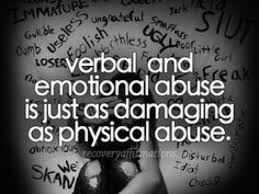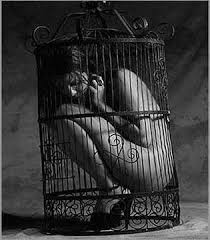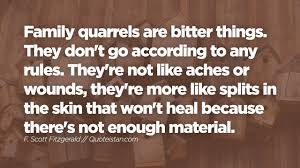
- Every time you are devalued by them, it is designed to make them feel better about themselves at your expense
- Every time you are humiliated in front of other people it is to discredit you in the eyes of others, to weaken your support system
- Every time your opinion is disregarded or actively attacked, it is to attack your mental well-being and trust in yourself and they are absolutely indifferent to the consequences
- Every time they gaslight you it is an attempt to make you feel like you are irrational and are losing your mind
- Every time they nag you until you concede to their “way of thinking” they are trying to break your spirit with a thousand cuts
- Every threat is designed to terrorise you
- Every sexual encounter is aimed at humiliating you
- Every narcissistic rage is to make you fearful of more aggression
- Every time they judge you, it is to make you feel small and insignificant
- Every time they give you the silent treatment it is to let you know that you are not worthy of their attention
- When they sneer at your friends and family it is to isolate you from your support system so that they can mess with your head without being challenged
- When they blame you, they are making you take responsibility for their bad behaviours
- When they lie to you, they are hiding their true self from you
- When they intimidate you it is because they are completely out of control themselves so that they have to control another person to make themselves feel stable (when they are anything but)
- When they interrogate you, they want to make sure that you are not up to all of the dubious activities that they are indulging in
- When they forget stuff or rewrite history, they are denying you and your memories/your reality
- When they are passive aggressive it is another ploy to make you question your intuition and rational thinking
- When they tell you that no one could love you as much as they do, they want to imply that you are “unlovable”, but since a narcissist has no idea of what love is…
Ignoring
- This is when a parent does not respond to their infant’s/child’s needs, or a partner does not recognise the needs of their other half. This can take the form of
- Failure to acknowledge significant events (birthdays, graduations, job promotion)
- Lack of attention to interests
- Planning activities for child/partner without their consent
- Trying to force child/partner into inappropriate role as care giver
- Denying health issues
- Sneering at friends
- Physical abandonment
- Not letting the other person make decisions about their own life
- Being rude to visitors so that they stop calling
- Complaining about time spent with other people
Rejection
- Constant criticism
- Shouting at the child\partner
- Name calling
- Deliberate humiliation
- “Joking” about weaknesses/insecurities
- Inappropriate age appropriate treatment of child/adult
- Pulling back if “other” offers appropriate signs of physical contact or affection, so that if you go to kiss them they will physically pull away from their partner/child
- Body shaming – too something fat/thin/short/tall/grey haired/
- Physical abandonment – not taking care of their partner/child when they are physically sick or for example letting their teenage walk home at night alone because they can’t be bothered to collect her after a party
Frightening
- Teasing to the point of total humiliation
- Verbal abuse
- Threatening abandonment – either divorce or leaving a child behind somewhere unknown to them
- Destroying precious personal objects
Isolating
- Telling a child/partner who they can be friends with
- Limiting the interaction with other people
- Sneering at friends that they don’t like/threaten them
- Not allowing social interaction with peer/interest groups
- Being overtly rude or hostile to visitors to the point that they feel uncomfortable and stop visiting
Exploiting
- Giving a child responsibility that are age inappropriate such as minding younger siblings, taking care of parents emotional needs or doing too much house work
- Giving a child jobs that are too demanding and stressful for them
- Excessive demands of money from partner/child
- Refusal to participate in the “shared” responsibilities in the relationship
- Making excessive demands on a child’s/partner’s free time
- Offering child’s/partner’s time and energy to a third party without asking
- Giving child’s/partner’s things to a third party to make the narcissist look generous
- Refusal to listen to what the child/partner says
- Demanding that their partner earns more money and then complain that they are never at home
- Over spending of partner’s money without consent
- Applying for jobs in other places without discussing it with their partner
- Arranging holidays without consulting their partner





